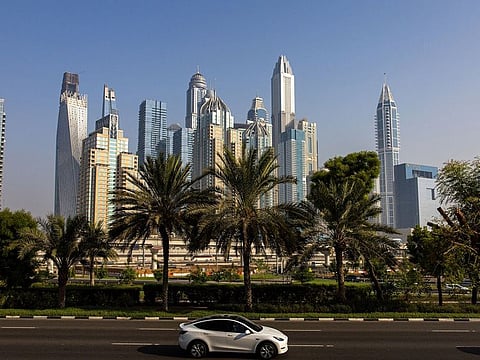Dubai property market got one massive boost from Golden Visa – and it is staying put
Invest for longer helped these homeowners map out a clearer vision of their futures

For two decades, Dubai’s property market was driven by a short-term mindset.
Buyers purchased property, either as a home or an investment, with the expectation that they could sell it after an average period of 5 years. Unless you were planning to start and grow a business in the city, you were unlikely to plan further beyond that timeframe.
Part of the reason was the transient nature of life in Dubai, which was underscored by the default 2-year validity period for residence visas – it was especially cumbersome for families as the visa of every dependent would need to be renewed every two years.
The introduction of the Golden Visa in 2018 held the potential to change all that, and that change is starting to become evident.
Amidst all of the record-breaking transactions and intense flurry of real estate activity that has taken place in the post-Covid era, we are seeing buyers and investors adopt a more long-term view of property ownership. This is most noticeable at the higher end of the market, where it was easier to meet the eligibility criteria for Golden Visas. As the criteria have been lowered over the past year, we can expect to see similar trends happening at the lower end of the prime real estate market too.
A city that feels more like ‘home’
For most people living in Dubai, having a Golden Visa is the closest equivalent to having permanent residence in the city. By not having to worry about renewal for 10 years, they can make more concrete plans for themselves and for their families.
If a resident wanted to sponsor their young children, for example, they wouldn’t have to worry about renewal until their children were in college, as opposed to dealing with visa renewals throughout their school years.
That dramatically alters the way one perceives family life in Dubai, and how they make future plans. It also changes the mindset they adopt when it comes to purchasing real estate.
Prospective homebuyers are looking for properties that fill a longer-term need – this is one of the reasons we have started to see a resurgence of interest in older and established communities like the Jumeirah Islands.
Buyers are more than happy to purchase an older property and spend time and money upgrading it to their liking, because now it feels more like a home that will serve their family’s needs well into the future.
Capital appreciation
Real estate is an asset class that always makes money if held for a long enough period of time (or re-invested wisely). ‘Buy and hold’ is one of the most commonly used investment strategies in Dubai, in which a property owner holds onto their asset and generates passive income through long-term rentals.
By adjusting rents based on market activity, a wise investor can use those rental returns to cover mortgage payments, service charges, and cost of upkeep, and ultimately, to turn a profit.
The Golden Visa, alongside other reforms aimed at facilitating all types of investment, has boosted confidence in Dubai’s business landscape. Investors are now re-assessing the type of projects and properties that they are putting their money into with a longer timescale in mind and are in a better position to see their investments become profitable over time.
This is particularly true of the offplan sector, where investors can buy into a new project and watch their investment continue to appreciate long after the project is completed.
Finding a new equilibrium
The most significant upshot of this long-term property-buying mindset is that when a property goes off the market, it is unlikely to go back up for sale in the near future. This will, to some extent, compound the supply issues plaguing the market as buyers and investors snap up available stock and hang onto it.
On the other hand, buyers are also becoming more discerning with what requirements they have from a home that they intend to inhabit for the next decade, which adds to the expected timeframe of a transaction. Thus, the market needs to re-adjust to match the new status quo, and brokers will have to adapt their sales strategies accordingly.
This also means that the market in Dubai will enter a new period of maturity and will continue to inspire tremendous confidence amongst prospective buyers and investors from around the globe interested in purchasing luxury real estate.
Sign up for the Daily Briefing
Get the latest news and updates straight to your inbox








